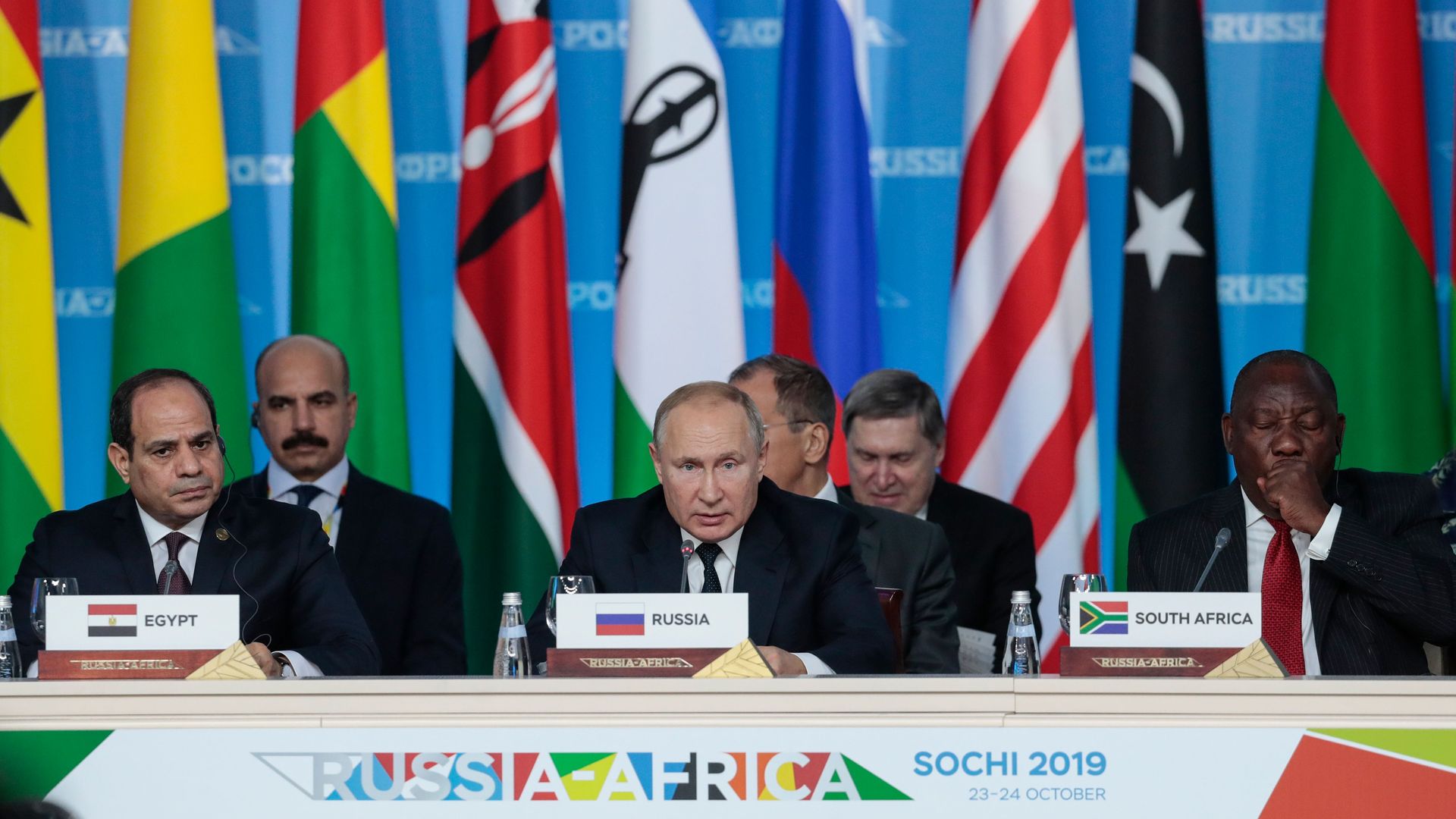
Vladimir Putin is signaling to the world this week that Russia has returned to Africa, hosting representatives of all 54 African nations, including 43 heads of state or government, at his retreat in Sochi.
The big picture: Russia is already Africa’s top arms supplier and is deepening relationships in areas like mining and security. But Putin’s primary objective with the inaugural Russia-Africa Summit was to “rattle the U.S. and Europe, which have taken Russia’s decades-long absence from Africa for granted,” contends Paul Stronski of the Carnegie Endowment.
- “The foreign policy Russia is pursuing in Africa today is driven largely by opportunism — a departure from the ideological approach of the USSR, which invested heavily … to create client regimes among revolutionary and post-colonial leaders,” Stronski writes for Axios Expert Voices.
- Meanwhile, Stronski argues, “the U.S. and its allies have disengaged from Africa, creating vacuums Moscow can exploit.”
W. Gyude Moore, a former Liberian minister of public works now at the Center for Global Development, tells Axios that few African leaders will have worried much about U.S. reaction to their presence in Sochi.
- “That is simply a reflection of the decline of American influence on the continent,” he says.
- For a number of African countries, he adds, America has already been surpassed by China as the most important external player.
As for Russia, while they “don’t have the checkbook of China or the United States,” he says, “they have specific competencies a number of African countries need.”
- “If you’re a Nigeria, Burkina Faso, Mozambique, Mali, you’re dealing with insurgencies in your country. And seeing what Russia has done in Syria, maybe it makes sense to have a relationship with Russia on that front."
- "If you are Rwanda, if you are South Africa, you have significant problems with power. Russia is selling nuclear power."
- "If you’re Egypt, the price of bread and cereals is a national security issue. Well, 27% of Russia’s exports to Egypt are cereals.”
Russia is also willing to provide diplomatic support, and even mercenaries, to regimes treated as pariahs by other powers.
The flipside: Russia simply doesn't have the economic might to match the investments and trade coming from China, the U.S., "and even many lesser powers," Stronski writes.
- "It's deepest inroads are in highly troubled countries, such as the Central African Republic, or pariah states such as Sudan and Zimbabwe that are often under UN sanctions."
- "Limited resources and risk appetite have left Russia falling back on tools like sending Kremlin-connected mercenaries to conflict zones or offering consulting services to autocratic regimes on election manipulation."
However, the summit shows African countries clearly think the benefits of engaging with Russia outweigh the costs.
- It's one thing to write about and debate these issues from Washington, Moore says. But when you're in office, "you have to deliver."
- "Usually, wherever you can get resources to be able to deliver, that's what you do."
Why it matters: Moore says that's part of why America's declining influence in Africa is so "dangerous."
The bottom line: "Russia is not going to advocate for those. Neither will China.”







